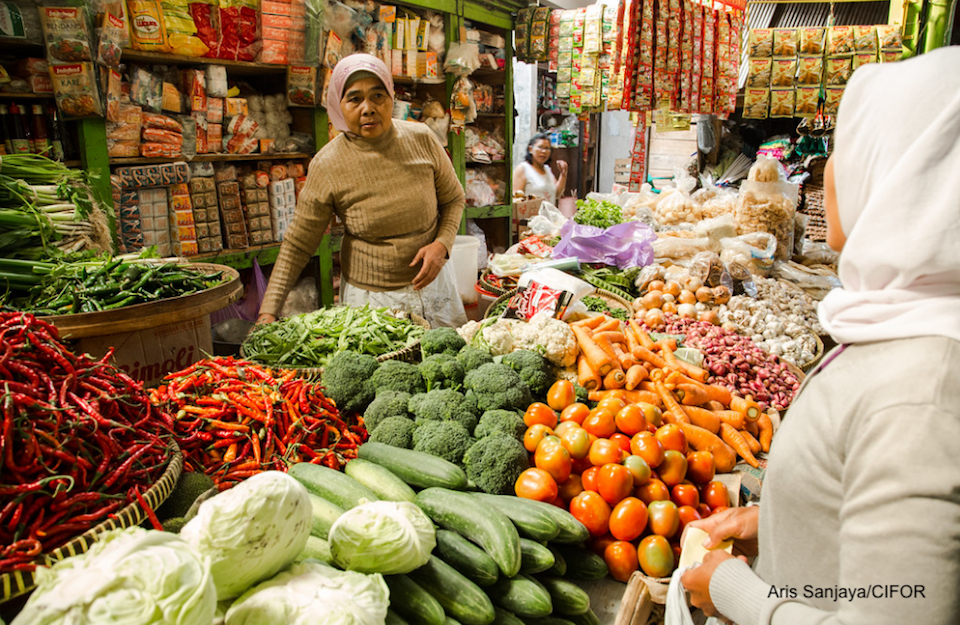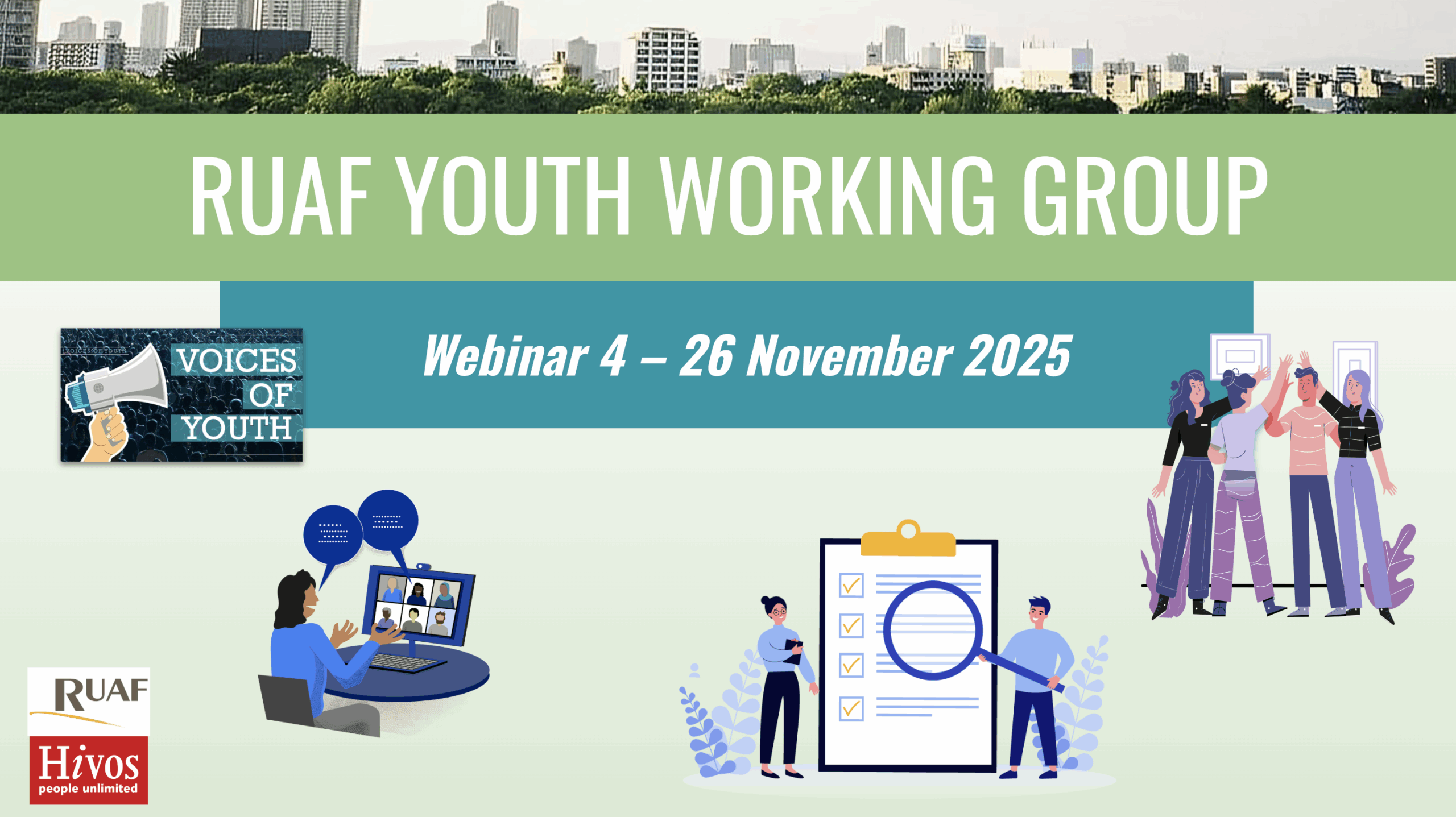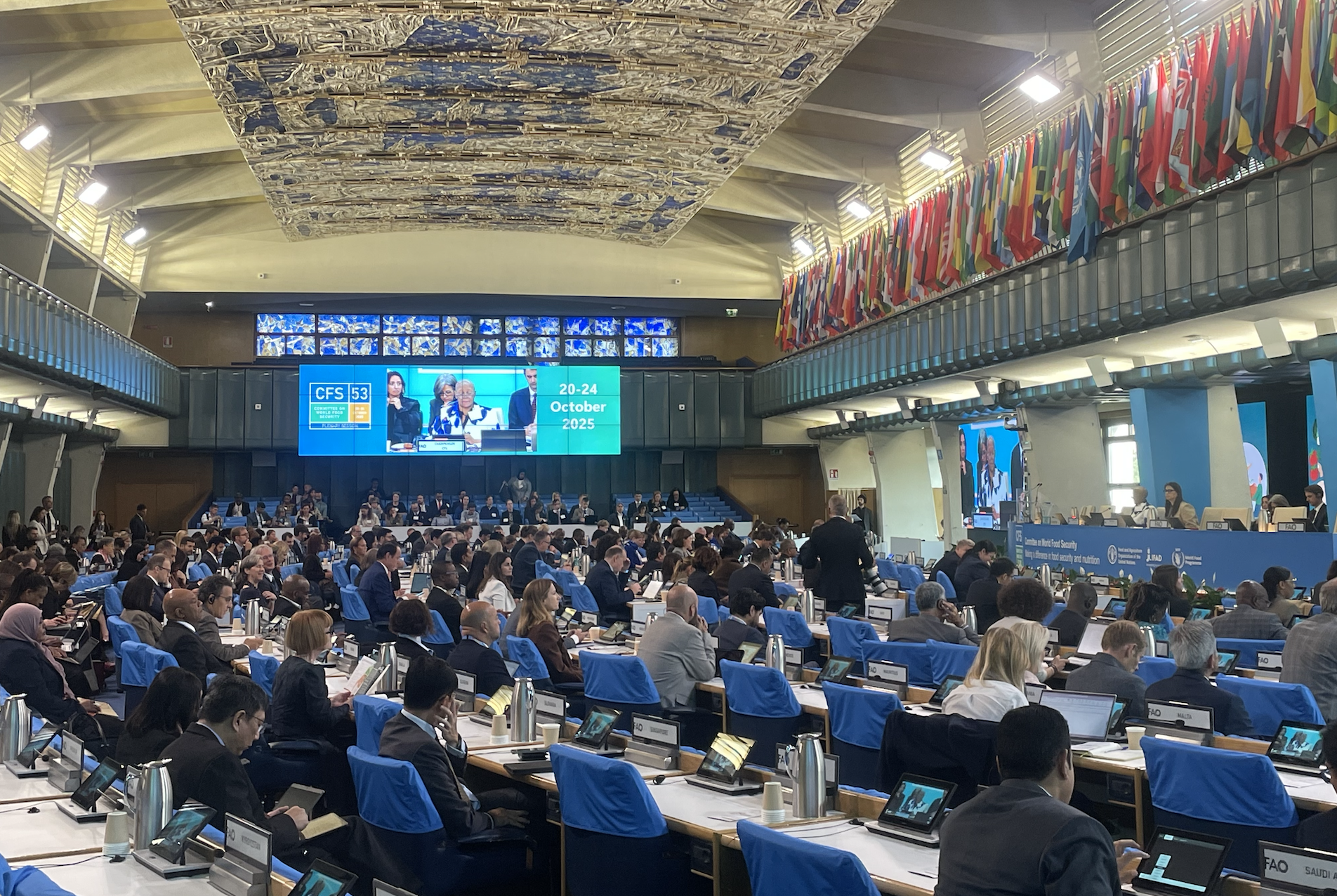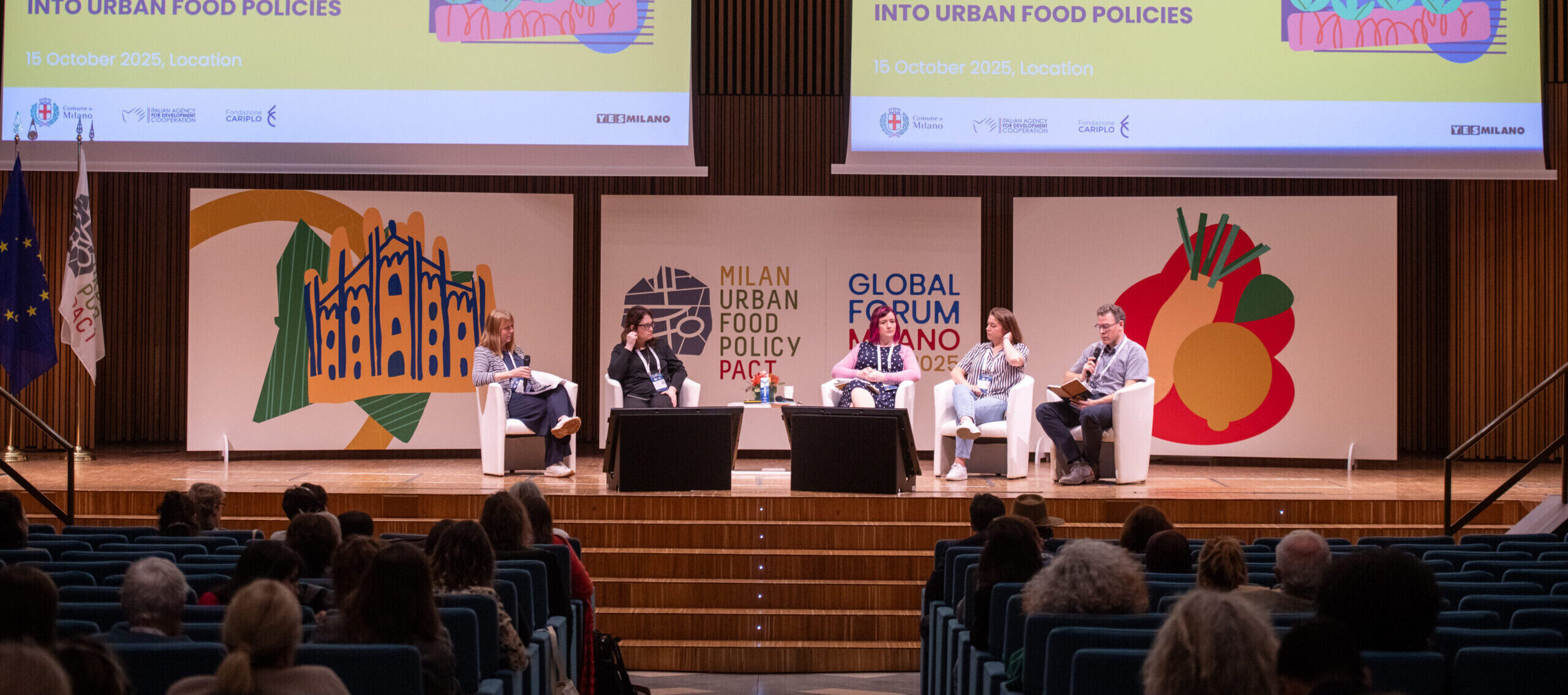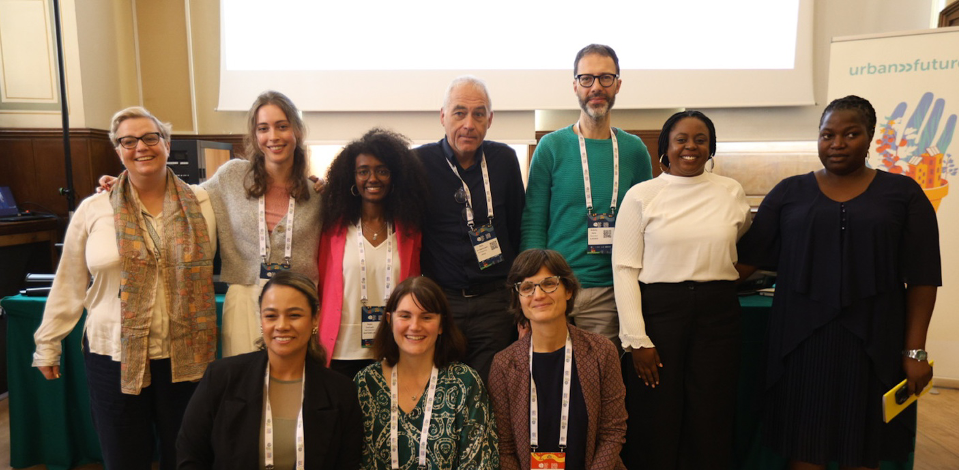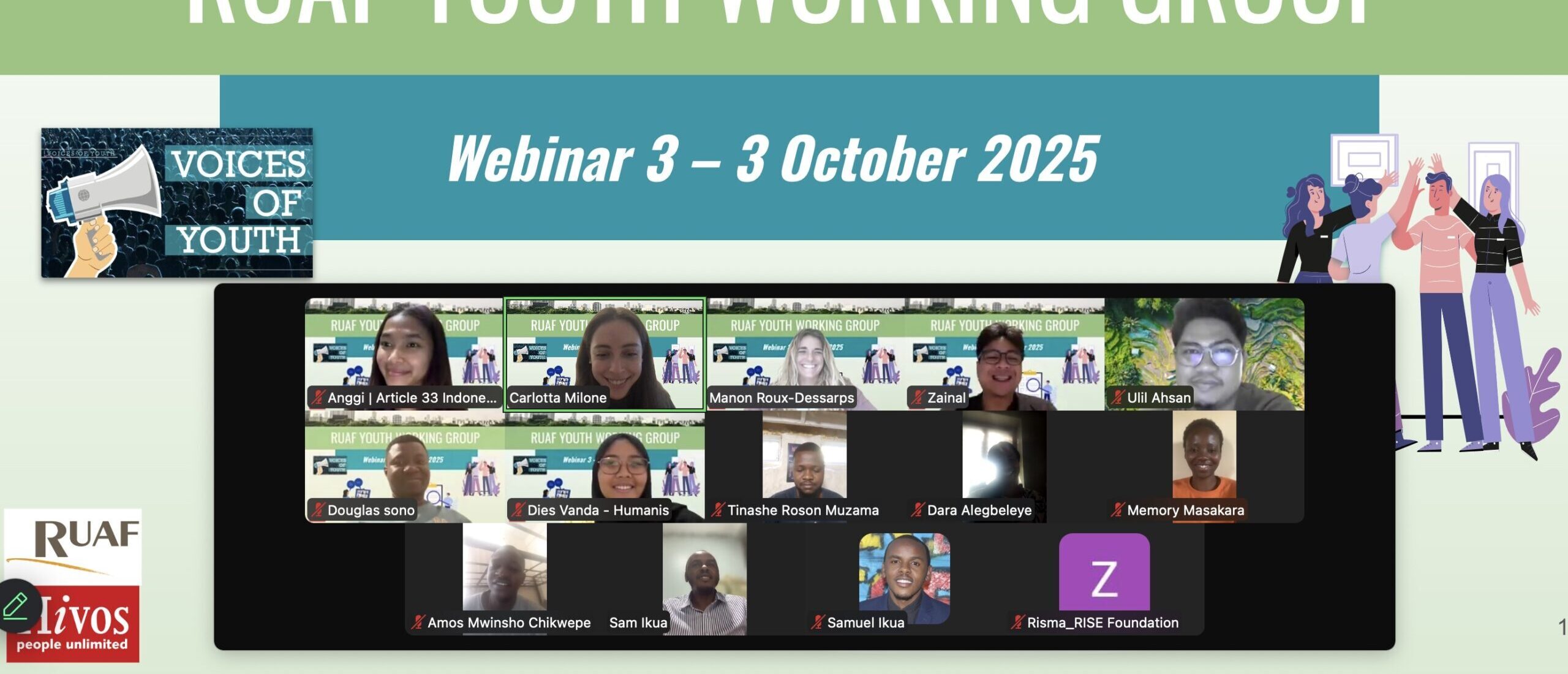The webinar series From Research to Resilience: Climate-smart solutions to enhance ecosystem health and strengthen food, nutrition and water security for all assesses the progress of research for development, captures lessons learned, and identifies the scientifically proven tools and approaches that climate-vulnerable communities can adopt to secure more inclusive, sustainable and resilient futures.
Webinar #3: Towards resilient city region food systems
Date: Tuesday, October 12, 2021
Time: 8.00 AM EST, 2:00 PM CEST, 5:30 PM IST (1 hour)
Location: Virtual event.
Register: Register here. (CLOSED). The webinar recording is available here.
This webinar will present and discuss the added value of two tools developed by the CGIAR Research Program on Water, Land and Ecosystems (WLE) and the RUAF Global Partnership to enhance the resilience of city region food systems.
The first, the City Region Food System (CRFS) toolkit is designed to support informed decision-making and action planning and has recently been updated (with new methodologies and training materials) to enhance resilience to pandemics and climate shocks and stresses.
The second, an urban food monitoring framework based on the CRSF, has been developed to monitor the implementation of the Milan Urban Food Policy Pact and includes 44 quantitative and qualitative indicators.
The webinar will introduce the tools, highlight lessons learned to inform their implementation, and discuss how they can be used to strengthen resilience in water and food solutions. Representatives of FAO, MUFPP, RUAF Global Partnership, and Cities involved in this work will present and participate in a panel discussion.
Recordings and presentations
-
- Introduction (Pay Drechsel, WLE/IMWI)
- City Region Food System Program (Jess Halliday, RUAF)
- Findings from Tamale and ongoing action planning (Philip Amoah, IWMI Ghana)
- Milan Urban Food Policy Pact Monitoring Framework (Joy Carey, RUAF)
- CRFS and MUFPP indicators in Quito, Ecuador (Alexandra Rodríguez, Participatory Urban Agriculture Project)
Resources
About the webinar series
‘From Research to Resilience’ will discuss the critically important role research and innovation can play to enhance climate adaptation/mitigation, strengthen the resilience of food systems, protect ecosystems, and help ensure food, nutrition and water security for all.
Informed by the experience and insights of WLE and its partners, and the solutions the program has developed and refined over the past decade, eight webinars will promote promising scientific innovations designed to protect climate-vulnerable ecosystems, communities and livelihoods. The tools and approaches to be discussed – which also prioritize the inclusion of women, youth and other marginalized groups – target critical challenges across the Global South such as land degradation, water scarcity and climate variability.
Held strategically between the UN Food Systems Summit (UNFSS) and the UN Climate Change Conference (COP26), the webinars will identify evidence gaps, capture lessons learned and consolidate thinking on the future direction of research for development to sustainably transform our water, land and food systems. Themes include accelerating clean energy access, inclusive and gender-sensitive land restoration, resilient urban food systems, sustainable water management, disaster risk management, and innovative approaches to evaluate ecosystem health and monitor landscape restoration.
Objectives
- Capture lessons learned on the application of proven innovations to enhance the management of land and water resources, protect fragile ecosystems and sustainably intensify food production.
- Identify knowledge gaps to influence the direction of future research programs and initiatives.
- Consolidate thinking on the systematic changes needed to secure more sustainable, inclusive and equitable food systems amid a changing climate.
- Inform policies and investment decisions to enhance the sustainable management of ecosystems and water and land resources.
To know more about other sessions, visit this page.

